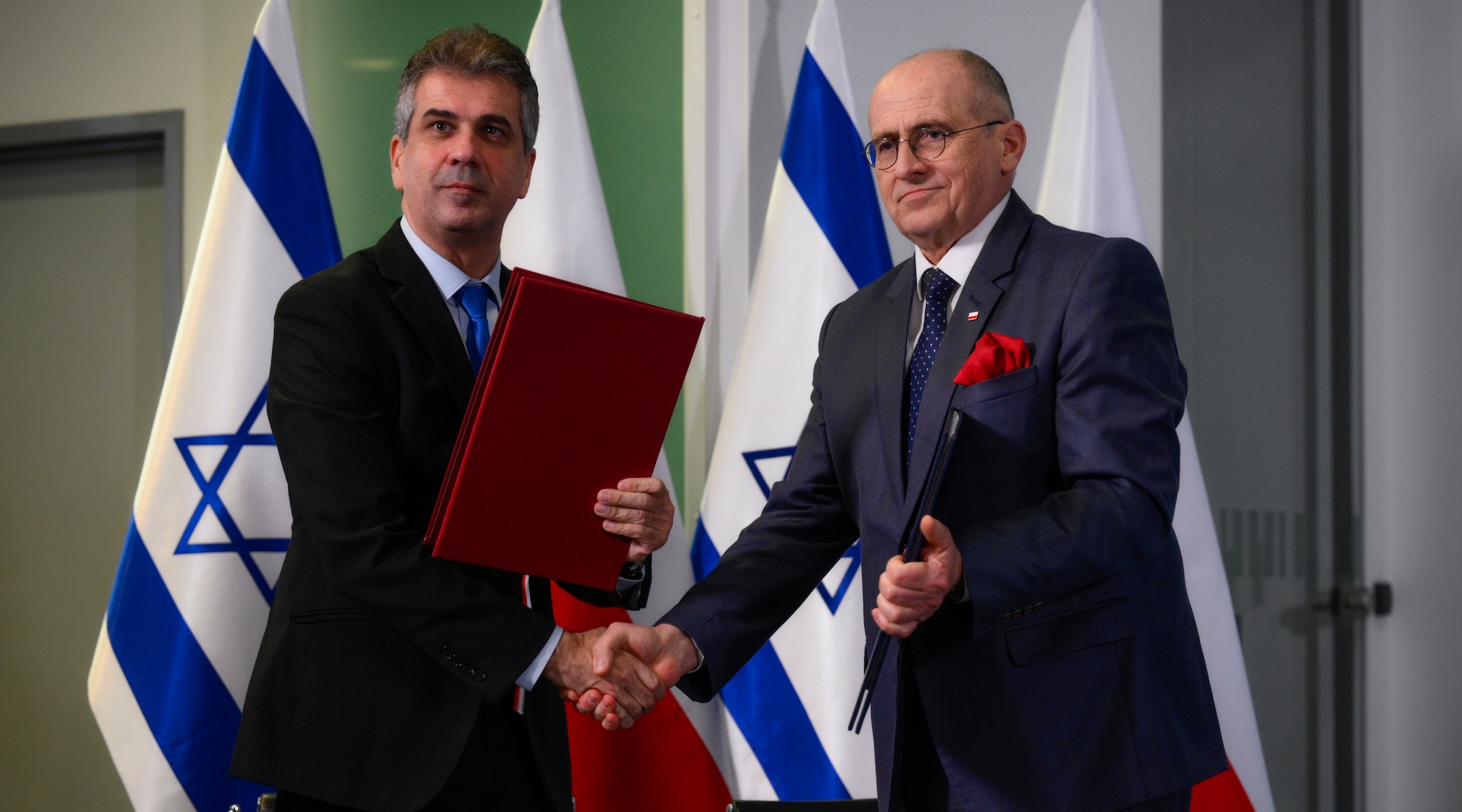Israel says ‘crisis’ with Poland is over as the countries agree to resume student trips to Holocaust sites
In 2018, Poland’s right-wing government caused a rift between the two countries by passing a law that made it illegal to accuse the Polish nation of having committed crimes during the Holocaust

Israeli Foreign Minister Eli Cohen, left, meets with Polish Foreign Minister Zbigniew Rau in Warsaw, March 22, 2023. (Jaap Arriens/NurPhoto via Getty Images)
(JTA) — After a warm meeting with his Polish counterpart on Wednesday, Israel’s Foreign Minister Eli Cohen declared that the years-long “crisis” in relations between the two countries was over.
Meeting in Warsaw, Cohen and Polish Foreign Minister Zbigniew Rau signed an agreement stating that Israeli youth trips to Holocaust sites in Poland would resume — rebooting a longstanding program that was called off last year as part of a series of ongoing diplomatic spats. The Times of Israel reported that Israel’s parliament, the Knesset, will have to approve the agreement for it to go into effect.
Poland also agreed to return its ambassador to Israel in the near future. The Polish envoy was recalled in 2021.
“This is an important moment in the relations between our countries,” Cohen said at a press conference, the Associated Press reported.
In 2018, Poland’s right-wing government caused a rift between the two countries by passing a law that made it illegal to accuse the Polish nation of having committed crimes during the Holocaust, a move that critics called a whitewashing of history. Then, in 2021, Poland passed another law that effectively closed off restitution claims by descendants of families that had lost property during the war.
Israeli politicians, including Israeli Prime Minister Benjamin Netanyahu, harshly condemned both moves and for a time Israel recalled its ambassador to Warsaw. Poland’s prime minister canceled a trip to Israel in 2019.
Before last year, Israeli students had for years visited the site of the Auschwitz concentration camp and historic Jewish sites throughout Poland, in cities such as Warsaw and Krakow.
Netanyahu expressed hope that Wednesday’s meeting “will lead to even closer cooperation between the two countries.”
This article originally appeared on JTA.org.
A message from our CEO & publisher Rachel Fishman Feddersen

I hope you appreciated this article. Before you go, I’d like to ask you to please support the Forward’s award-winning, nonprofit journalism during this critical time.
We’ve set a goal to raise $260,000 by December 31. That’s an ambitious goal, but one that will give us the resources we need to invest in the high quality news, opinion, analysis and cultural coverage that isn’t available anywhere else.
If you feel inspired to make an impact, now is the time to give something back. Join us as a member at your most generous level.
— Rachel Fishman Feddersen, Publisher and CEO



















